Are you considering a second-hand screw making machine for your business? These machines are a cornerstone in the manufacturing world, ensuring that screws, an essential component in countless products, are produced efficiently and cost-effectively. This guide will delve into everything you need to know about buying, maintaining, and utilizing second-hand screw making machines.
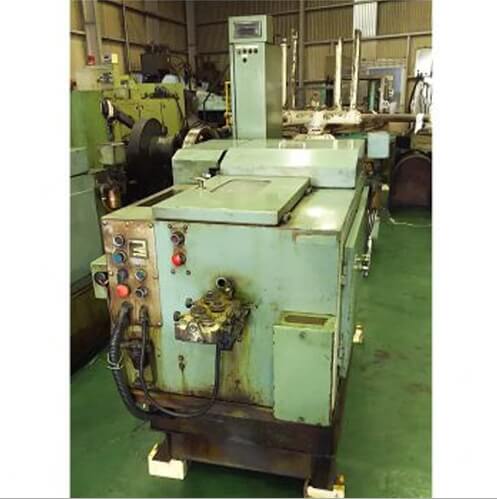
Understanding Second-Hand Screw Making Machines
Definition and Overview
Second-hand screw making machines are previously owned machines that are resold for continued use. They can vary from lightly used to heavily utilized, but they all offer significant savings and opportunities for businesses looking to optimize their production processes without breaking the bank.
Advantages of Buying Second-Hand Machines
Cost Savings
The most obvious advantage is cost savings. New screw making machines can be prohibitively expensive, especially for small to medium-sized enterprises. Second-hand options provide a more affordable alternative, allowing businesses to allocate funds to other crucial areas.
Environmental Benefits
By purchasing a second-hand machine, you’re contributing to environmental sustainability. Reusing machinery reduces waste and the demand for new manufacturing, which in turn lowers carbon emissions and conserves resources.
Availability of High-Quality Brands
Sometimes, high-quality brands that might be out of your budget when new are available at a fraction of the price in the second-hand market. This means you can access top-tier machinery that would otherwise be inaccessible.
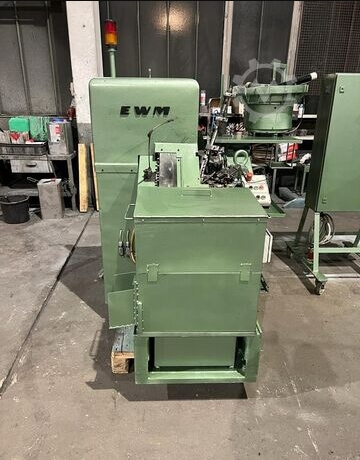
Types of Screw Making Machines
Automatic Screw Making Machines
These are highly efficient and can produce screws with minimal human intervention. They are ideal for large-scale production and can handle a variety of screw sizes and types.
Semi-Automatic Screw Making Machines
Semi-automatic machines require some level of manual input but offer a balance between automation and control. They are suitable for medium-scale operations.
Manual Screw Making Machines
These machines are operated entirely by hand and are perfect for small-scale productions or specialized screw types. They offer the highest level of control over the manufacturing process.
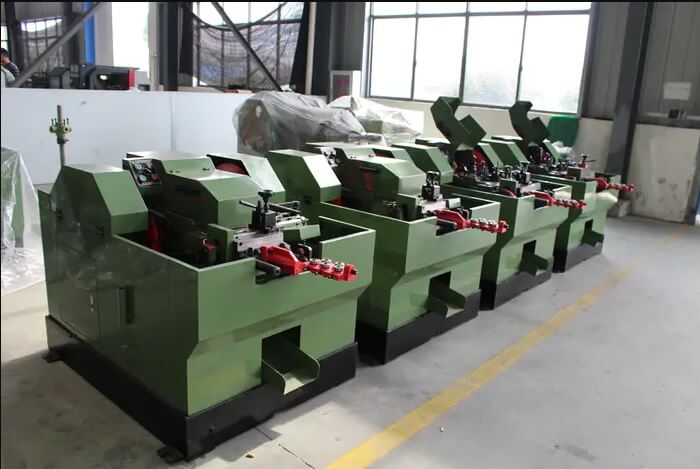
Key Features to Look for in Second-Hand Screw Making Machines
Durability
Ensure that the machine is made from high-quality materials that can withstand prolonged use. Look for signs of heavy wear and tear that might indicate a shorter remaining lifespan.
Precision
The machine should be capable of producing screws with high precision to meet quality standards. Check the specifications and any available performance data.
Compatibility with Different Materials
The machine should be versatile enough to handle various materials, from soft metals to harder alloys, depending on your production needs.
Ease of Maintenance
Opt for machines that are easy to maintain, with readily available parts and straightforward servicing requirements. This can save significant time and money in the long run.
How to Assess the Condition of Second-Hand Machines
Inspecting for Wear and Tear
Conduct a thorough physical inspection for signs of damage, rust, or excessive wear. Pay special attention to moving parts and areas that experience the most friction.
Checking Operational Efficiency
If possible, see the machine in operation to assess its efficiency and performance. Listen for unusual noises and watch for any signs of malfunction.
Verifying the Machine’s History and Usage
Request records of the machine’s maintenance history, previous usage, and any repairs that have been done. This can give you a clearer picture of its condition and longevity.
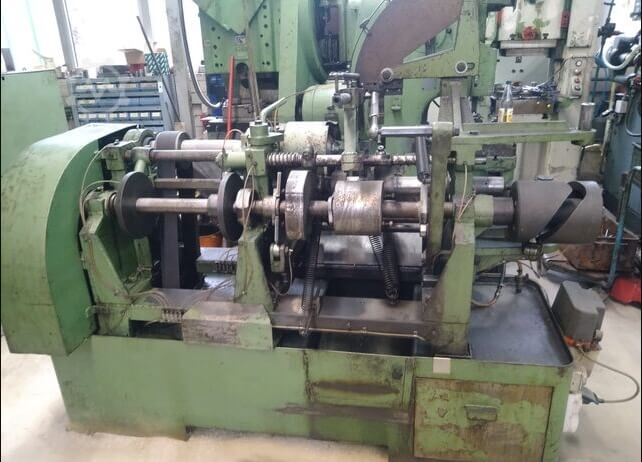
Tips for Buying Second-Hand Screw Making Machines Online
Research the Seller
Ensure that the seller is reputable by checking reviews, ratings, and their history on the platform. Avoid sellers with frequent complaints or unresolved issues.
Request Detailed Photos and Videos
Ask for high-resolution images and videos of the machine in operation. This can help you assess its condition more accurately.
Ask for a Warranty or Return Policy
Whenever possible, purchase from sellers who offer a warranty or return policy. This provides a safety net if the machine doesn’t meet your expectations.
The Buying Process
Setting a Budget
Determine your budget beforehand to narrow down your options and prevent overspending. Consider additional costs such as shipping and installation.
Negotiating the Price
Don’t hesitate to negotiate the price. Sellers often expect some level of haggling, and you might secure a better deal.
Finalizing the Purchase
Once you’ve agreed on a price, ensure all paperwork is in order. Get a receipt and any necessary documents proving the machine’s provenance and condition.
Transportation and Installation
Shipping Considerations
Choose a reliable shipping method that ensures the machine arrives in good condition. Consider insurance to protect against damage during transit.
Professional Installation vs. DIY
While installing the machine yourself might save money, professional installation can ensure it’s set up correctly and safely, potentially extending its lifespan.
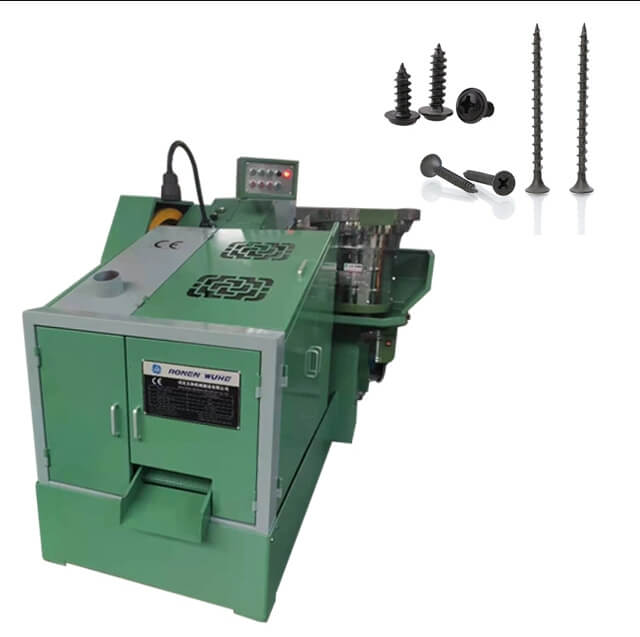
Maintenance and Upkeep of Second-Hand Screw Making Machines
Regular Cleaning and Lubrication
Keep the machine clean and well-lubricated to prevent wear and tear. Follow the manufacturer’s recommendations for the best results.
Periodic Professional Inspections
Schedule regular inspections by a professional to catch any potential issues early. This can help prevent costly repairs down the line.
Replacement of Worn Parts
Be proactive about replacing parts that show signs of wear. Using worn parts can lead to larger mechanical failures and affect production quality.
Case Studies: Successful Utilization of Second-Hand Screw Making Machines
Example 1: Small Business Success
A small business owner invested in a second-hand screw making machine and saw a 40% increase in production efficiency. The cost savings allowed for additional hires, further boosting productivity.
Example 2: Large Manufacturing Facility Savings
A large manufacturing facility replaced several outdated machines with second-hand, high-quality screw making machines, saving hundreds of thousands of dollars and reducing downtime significantly.
Common Pitfalls to Avoid
Overlooking Hidden Damages
Always inspect the machine thoroughly or have a professional do it to avoid any hidden damages that could lead to costly repairs.
Ignoring Compatibility Issues
Ensure that the machine is compatible with your existing production line and materials to avoid integration issues.
Skimping on Initial Inspections
A detailed initial inspection can save you from future headaches. Don’t rush this step, and if necessary, hire an expert to assist.
The Future of Second-Hand Industrial Machinery
Trends in Sustainability
As sustainability becomes a greater focus, the market for second-hand industrial machinery is expected to grow. Businesses are recognizing the environmental and economic benefits of reusing equipment.
Technological Advancements
Advances in technology may make older machines more efficient with upgrades, extending their usable life and making them a viable option for longer.
Second-hand screw making machines offer numerous benefits, from cost savings to environmental impact. By carefully selecting, inspecting, and maintaining these machines, businesses can enhance their production processes while staying within budget. Consider the advantages and take the necessary steps to ensure a successful purchase.
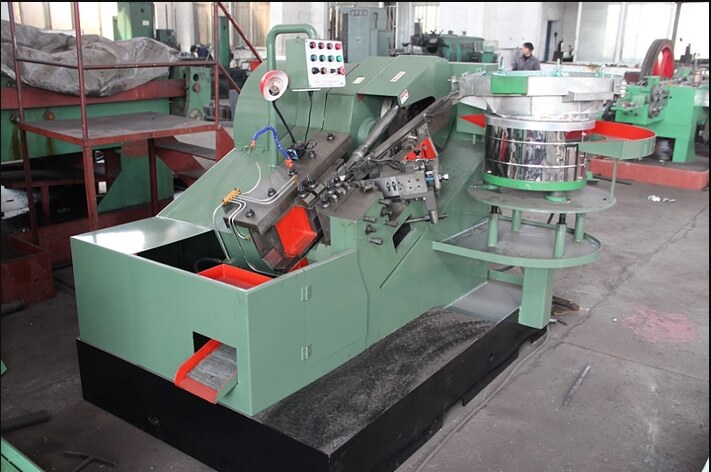
FAQs
Is it worth buying a second-hand screw making machine?
Absolutely! With proper inspection and maintenance, a second-hand machine can perform just as well as a new one, at a fraction of the cost.
How do I ensure the machine is in good condition?
Conduct thorough inspections, check the machine’s history, and if possible, see it in operation before purchasing.
Can second-hand machines be upgraded?
Yes, many second-hand machines can be upgraded with new parts or technology to improve their performance and extend their lifespan.
What should I do if the machine breaks down?
Have a maintenance plan in place and establish a relationship with a reliable repair service. Regular maintenance can prevent most breakdowns.
Are there financing options for purchasing second-hand machines?
Yes, some sellers and financial institutions offer financing options for purchasing second-hand industrial equipment. Research and compare to find the best deal.
If you need to purchase second hand screw making machines from China, feel free to send email to 120363038@qq.com.